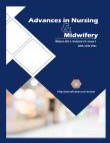Structural Modeling of the Relationship between Distress Tolerance and Quality of Life Based on the Mediating Role of Religious Beliefs in Patients with Opioid Abuse
The world is currently facing the drug crisis as a serious threat. This study was conducted with the aim of investigating the structural modeling of the relationship between distress tolerance and quality of life based on the mediating role of religious beliefs in opioid abuse patients.
The method of this research is descriptive correlation based on the model of structural equations. The statistical population of this research included all patients suffering from opioid abuse who referred to the community center for addiction treatment in SAYEBANE ARAMESH located in RASHT city. From this community, 300 qualified volunteers entered the study by the convenience sampling method. The WHO Quality of Life-BREF (1998), Simmons and Gaher Distress Tolerance Questionnaire (2005), Allports Religious beliefs Questionnaire (1967) were used for data collection, and AMOS24 software was utilized to analyze the findings.
The results showed that all the fit indexes are at an optimal level. The relationship between distress tolerance and intrinsic religious beliefs (0.32) is positive and significant (P<0.01). The relationship of this variable with extrinsic religious beliefs (-0.36) is negative and significant (P<0.01). The relationship between distress tolerance (0.19) and intrinsic religious beliefs (0.33) with quality of life is positive and significant (P<0.01). Also, the relationship between extrinsic religious beliefs and quality of life (-0.22) is negative and significant (P<0.01).
According to the results, intrinsic religious beliefs in opioid abuse patients, has direct impact on distress tolerance and quality of life. In fact, the higher the intrinsic religious beliefs in opioid abuse patients, ends in the higher the distress tolerance and quality of life. Also, extrinsic religious beliefs in opioid abuse patients, has inverse impact on distress tolerance and quality of life. In fact, the higher the extrinsic religious beliefs in opioid abuse patients, ends in the lowerthe distress tolerance and quality of life. Therefore, intrinsic religious beliefs as an Islamic moral variable can affect the distress tolerance and quality of life of opioid abuse patients.
- حق عضویت دریافتی صرف حمایت از نشریات عضو و نگهداری، تکمیل و توسعه مگیران میشود.
- پرداخت حق اشتراک و دانلود مقالات اجازه بازنشر آن در سایر رسانههای چاپی و دیجیتال را به کاربر نمیدهد.


